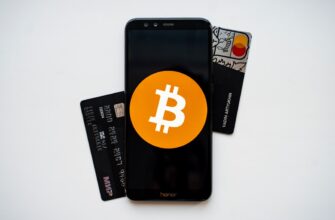- Introduction: The Seed Phrase Security Dilemma
- What Exactly Is a Seed Phrase?
- The Temptation: Why Consider Password Protection?
- Critical Risks of Password-Protecting Your Seed Phrase
- When Password Protection Makes Sense (Safely)
- Superior Alternative: The BIP-39 Passphrase
- Best Practices for Seed Phrase Security
- FAQ: Password-Protecting Seed Phrases
- Q1: If I password-protect my seed phrase, can wallet support help me recover it?
- Q2: Is encrypting a digital seed phrase backup safe?
- Q3: What’s better: a password or a BIP-39 passphrase?
- Q4: Can I use the same password for multiple seed phrases?
- Conclusion: Safety Through Simplicity
Introduction: The Seed Phrase Security Dilemma
In the world of cryptocurrency, your seed phrase is the master key to your digital wealth. This 12-24 word sequence can restore access to your entire wallet if devices fail or get lost. With rising cyber threats, many wonder: is it safe to protect your seed phrase with an additional password? While the intention is noble, this approach introduces critical risks that could permanently lock you out of your assets. Let’s dissect the safety implications.
What Exactly Is a Seed Phrase?
A seed phrase (or recovery phrase) is a human-readable representation of your wallet’s private keys. Generated during wallet setup, it:
- Derives all cryptographic keys in your wallet
- Follows the BIP-39 standard for universal compatibility
- Must remain offline and confidential
Losing it means losing your crypto forever. No bank can reverse this.
The Temptation: Why Consider Password Protection?
Adding a password to your seed phrase seems logical for extra security. Common motivations include:
- Physical theft mitigation: If someone finds your written phrase, they still need a password
- Digital storage concerns: Encrypting digital copies (like password managers)
- Defense against brute-force attacks
But this “security upgrade” often backfires catastrophically.
Critical Risks of Password-Protecting Your Seed Phrase
1. Irreversible Lockout: Forget the password? Your seed phrase becomes useless. Unlike email resets, crypto has no recovery mechanism.
2. Fragmented Security: Now you must protect two secrets (phrase + password) instead of one. Double the failure points.
3. No Standardization: Wallets don’t natively support password-locked seeds. You’re improvising security.
4. Inheritance Complications: Heirs may never access funds without both components.
When Password Protection Makes Sense (Safely)
One scenario justifies passwords: encrypting digital backups. If storing a seed phrase digitally:
- Use open-source tools like VeraCrypt for encrypted containers
- Never store passwords and seeds together
- Test recovery before transferring funds
Physical copies should NEVER be password-protected. Etch them on metal plates instead.
Superior Alternative: The BIP-39 Passphrase
Many wallets support an optional passphrase (13th/25th word) that:
- Creates a hidden wallet when combined with your seed
- Uses standardized cryptography (BIP-39)
- Allows plausible deniability (attackers see an empty wallet without it)
Unlike ad-hoc passwords, this is a designed security layer. But the same rule applies: lose the passphrase, lose access.
Best Practices for Seed Phrase Security
Prioritize these methods over password experiments:
- Physical Media: Engrave on fire/water-resistant metal plates
- Geographic Separation: Split phrase copies across locations
- No Digital Traces: Avoid photos, cloud storage, or messaging apps
- Shamir’s Secret Sharing: Split phrases into shards requiring multiple parts to reconstruct
FAQ: Password-Protecting Seed Phrases
Q1: If I password-protect my seed phrase, can wallet support help me recover it?
A: No. Wallet providers cannot bypass your password. Crypto’s decentralized nature means you bear full responsibility for access.
Q2: Is encrypting a digital seed phrase backup safe?
A: Only if done correctly with audited tools, and with the password stored separately. Still riskier than offline storage.
Q3: What’s better: a password or a BIP-39 passphrase?
A: A BIP-39 passphrase is superior. It’s cryptographically integrated rather than a DIY add-on, reducing compatibility issues.
Q4: Can I use the same password for multiple seed phrases?
A: Absolutely not. This creates a single point of failure. Each seed phrase requires unique security.
Conclusion: Safety Through Simplicity
Password-protecting your seed phrase trades perceived security for existential risk. The crypto ecosystem’s golden rule—”Not your keys, not your coins”—extends to recovery: Not your memory, not your coins. Stick to battle-tested methods: offline storage, geographic distribution, and BIP-39 passphrases. In security, complexity is often the enemy of safety.








